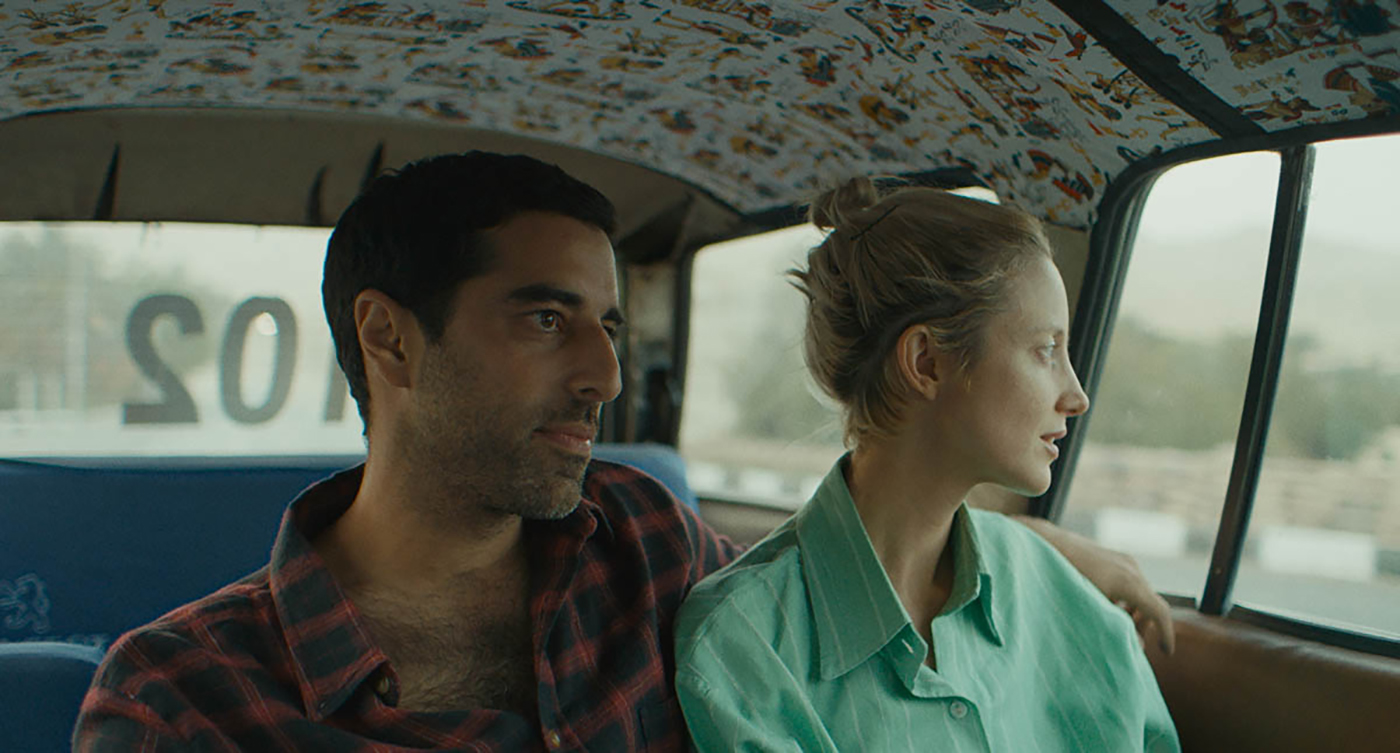
Sundance Film Review: Luxor
Sundance
Luxor
Sundance Film Festival
Director: Zeina Durra
The synopsis of Zeina Durra’s Luxor sounds more like a genre-typical travel romance than what’s delivered. Luxor is closer to a quiet, art-house character study. The protagonist, Hana (Andrea Riseborough), is a doctor on leave from treating Syrian war victims in a clinic on the Jordanian-Syrian border. After meeting locals she knew when she was younger and living in the city, she runs into a former flame, archeologist Sultan (Karim Saleh), and the romance starts up again. Sultan’s warmth helps Hana’s recovery, and the audience sees flashes of a woman closer to her fiery, younger self. The delicate handling of Hana’s character is commendable in the writing and directing of Durra, but the slow pace occasionally causes the plot progression to snag. Overall, Luxor is a calm film with depth to be found in its contemplative shots of the mysterious alleys of a far-away city that parallel the equally unfathomable workings of a woman post-trauma.
The camera tails Riseborough’s fragile silhouette as she arrives in Luxor, Egypt, a city where she’d spent a period studying. Dreamy shots of Luxor’s streets and ruins punctuate Hana’s wanderings, with modern street art and hieroglyphic panels of tombs that make you want to travel to and walk around yourself. Riseborough’s Hana looks fragile. Her forlorn, lamp-like eyes gaze over the scenery of Egypt, but she seems to be elsewhere. Her body in thick, too-large clothes looks like the frame of an injured bird or white-skinned lady in a Dutch portrait. I don’t imagine it’s easy to carry as much of this film as Riseborough does just with the movement of her body and occasional interactions with locals and tourists. There’s no doubt that portraying this depth of emotion and melting into scenes takes expertise on the part of Riseborough and Durra.
Hana’s and Sultan’s interaction provides moments of intensity: the emotional wall Hana’s been holding breaks as she stumbles back to her hotel room with Sultan. Saleh’s smile brightens the film and seems to pull Hana out of her depression. The audience sees a shade of the happy woman she must have been in her younger years. The film’s description calls Hana’s and Sultan’s relationship a “restrained story of romance post-trauma,” and it’s true that their chemistry is always foregrounded by Hana’s obvious fragility and emotional distance. The story ebbs along through tense scenes that don’t always answer the questions the viewer has about the couple’s history and the potential for their relationship after Hana’s leave.
An interesting and recurrent element is the way spirituality and the mystical air of the city of Luxor crop up in Hana’s journey. Walking through temple ruins, a group of older women—one who says she first came to Egypt with the Grateful Dead in 1978—is looking for invigorating energy between walls covered in decorated panels. Although Hana seems skeptical of the tourists’ beliefs, later the hotel bar manager brings up the healing potential of the place.
The audience is left unsure what the character ultimately thinks about all of this, but Hana’s decision to return to such an influential place in her personal history shows some attempt to circle back to the person she was before the trauma happened. In the end, the elusive plot and lush scenery make you want to go to Egypt to do some quiet introspection yourself. –Hannah McBeth
Read more of SLUG’s comprehensive coverage of the 2020 Sundance Film Festival.